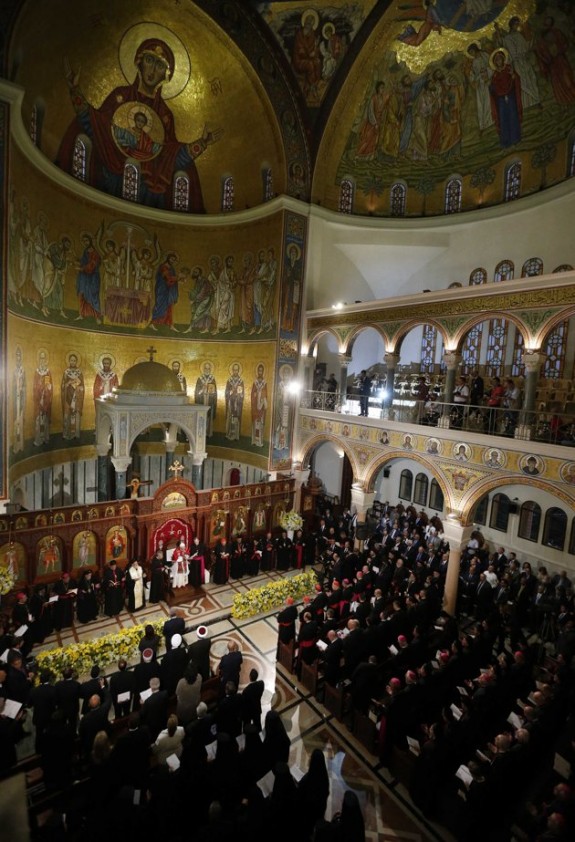It couldn’t be a more timely or urgent declaration.
Pope Benedict XVI presented a major document calling on Catholics in the Middle East to engage in dialogue with Orthodox, Jewish and Muslim neighbors, but also to affirm and defend their right to live freely in the region where Christianity was born.
In a ceremony at the Melkite Catholic Basilica of St. Paul in Harissa, Pope Benedict signed and formally delivered a 90-page document of his reflections on the 2010 special Synod of Bishops, which was dedicated to Christians in the Middle East.
A section of the document dedicated to interreligious dialogue encouraged Christians to “esteem” the region’s dominant religion, Islam, lamenting that “both sides have used doctrinal differences as a pretext for justifying, in the name of religion, acts of intolerance, discrimination, marginalization and even of persecution.”
Yet in a reflection of the precarious position of Christians in most of the region today, where they frequently experience negative legal and social discrimination, the pope called for Arab societies to “move beyond tolerance to religious freedom.”
The “pinnacle of all other freedoms,” religious freedom is a “sacred and inalienable right,” which includes the “freedom to choose the religion which one judges to be true and to manifest one’s beliefs in public,” the pope wrote.
It is a civil crime in some Muslim countries for Muslims to convert to another faith, and in Saudi Arabia, Catholic priests have been arrested for celebrating Mass, even in private.
The papal document, called an apostolic exhortation, denounced “religious fundamentalism” as the opposite extreme of the secularization that Pope Benedict has often criticized in the context of contemporary Western society.
Fundamentalism, which “afflicts all religious communities,” thrives on “economic and political instability, a readiness on the part of some to manipulate others, and a defective understanding of religion,” the pope wrote. “It wants to gain power, at times violently, over individual consciences, and over religion itself, for political reasons.”
The pope’s remarks at the signing are here. And the exhortation is available for reading at the Vatican website (pdf)
There’s also more local color and details at CNEWA’s blog, One-to-One, with some first-hand impressions by Msgr. John Kozar.
















